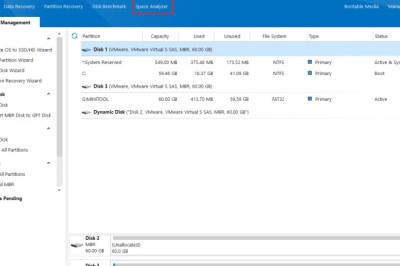views
Arabic, renowned for its extensive history and widespread usage, is a fascinating language to learn. If you're keen on delving into the Quran, immersing yourself in Middle Eastern traditions, or expanding your professional prospects, learning Arabic can be a gratifying experience. With its unique script, grammar rules, and pronunciation, consistent effort and dedication are required to learn Arabic. Here are some study tips for learning Arabic:
Set Clear Goals
Define what you want to achieve by learning Arabic. This could be anything from communicating effectively with Arabic-speaking friends and family members to just learning the basics to use when traveling. You may write down your goals and refer to them as you progress and learn Arabic. This can help you stay motivated and accountable.
Create a Structured Study Plan
A study plan can help you stay organized and focused. Consider your goals, time availability, and learning style. Consider dedicating specific times of the day or week to studying Arabic. Include different learning activities in your study plan, such as listening, speaking, reading, and writing. This can help you build different language skills and become a well-rounded Arabic speaker.
Use Quality Learning Resources
The quality of your learning resources can impact your language learning journey. Choose resources that are efficient, engaging, and relevant to your learning goals. Use online and offline tools and resources, such as textbooks, online courses, language exchange programs, mobile apps, podcasts, and videos. Opt for those that cover different aspects of the Arabic language, such as grammar, vocabulary, pronunciation, and cultural nuances.
Immerse Yourself in Arabic
Expose yourself to the language as much as possible. This can be achieved by listening to Arabic radio, watching Arabic TV shows or movies, and talking to Arabic-speaking people. Immerse yourself in the Arabic culture and try to simulate how native speakers interact in different social contexts. You can also read Arabic books, newspapers, or articles to improve your language skills. This practice may help improve your vocabulary and understanding of the language.
Practice Speaking
Talking with other Arabic speakers can enhance your learning skills. You can enroll in an Arabic language class or join a language exchange program to enhance your speaking skills. Start with simple conversations and gradually increase the difficulty level. Record your voice and listen to it to identify your mistakes and improve your pronunciation.
Focus on Arabic Script
The Arabic script is unique, and mastering it can help you learn the language. Arabic letters have different shapes and sounds and can be written differently depending on their placement within a word. Practice writing letters and connecting them to form words. Once you've learned the letters, move on to learning the diacritics — small marks placed above or below the letters to aid reading and pronunciation. Regular practice of the script can broaden your understanding of the Arabic language.
Begin Your Journey To Learn Arabic Today
Learning Arabic can be an enriching and fulfilling experience, provided you invest the necessary effort and dedication. This rich and diverse language can open doors to new cultures, opportunities, and personal growth. Sign up for an Arabic course today and unlock a world of possibilities.






















Comments
0 comment